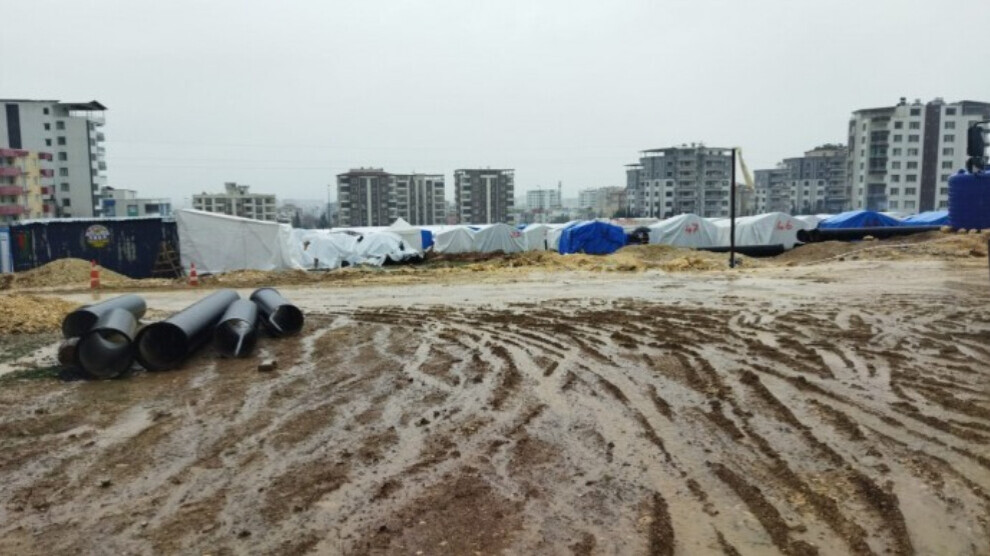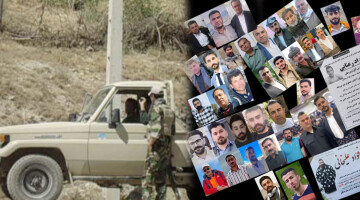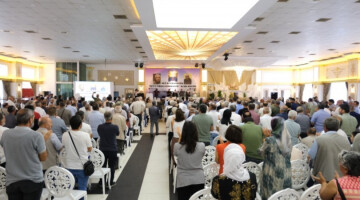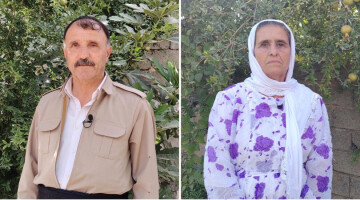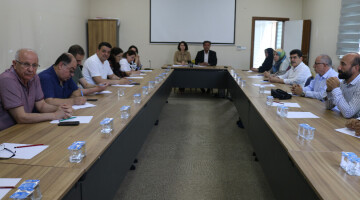Forty days after the earthquake in the Turkish-Syrian border region, heavy rains have caused floods in Urfa and the earthquake areas of Adiyaman and Malatya. Izzet Karadağ from HDP (Peoples’ Democratic Party) Crisis Coordination is in Adiyaman spoke to ANF and stated that life has been crippled by the floods. Although weeks have passed since the earthquake disaster, there are still not enough tents and no housing containers in the region. Seventy percent of the population has left the area.
LIFE IS PARALYSED
Izzet Karadağ said that the tent area of the disaster management agency AFAD was flooded: "There has been flooding and heavy rains are expected to continue. Especially the tents set up by AFAD in the southern part of Adiyaman were flooded. Tents set up by individuals in front of their houses or on vacant land in this region have also been flooded. Life has been paralysed. There is still no water supply in Adiyaman. There was already no drinking water, the entire town was not supplied with water. But now the water supply is also cut off. There has been no water for two days. There is still mud everywhere. Rumour has it that four people have died and three people are missing. These people have still not been found. AFAD is carrying out work, but it is very limited. On the one hand, it is clearing the debris. On the other hand, it is about protecting tent areas from new floods. Work is being done, but the measures are very incomplete."
NO HOUSING CONTAINERS IN ADIYAMAN
When asked about the situation in Adiyaman before the flood, Karadağ stated: "Before the flood, there was still rubble and destroyed buildings in many streets. They were untouched, and they still are. With the flood, the difficulties have doubled. A second disaster has struck. Although forty days have passed, it is as if the earthquake in Adiyaman happened only yesterday. There is no search for people, and the rubble remains as it is. A large part of the city has already migrated, over seventy percent. The city has emptied and those who remain have taken refuge in tents in empty areas around the city or in parks and in front of houses. There are still no containers. The municipalities of Izmir and Mersin are working on the construction of containers. They are building up areas. A company from AFAD is also on the ground, but no containers have been put up yet. There is only preparation of infrastructure."
AID DELIVERIES ARE DECREASING
In Hatay, the state continues to confiscate tents and block voluntary solidarity networks. When asked if it is similar in Adiyaman, Izzet Karadağ answered: "The owners of the camps we used in the first days of the earthquake were put under pressure. We had to evacuate these camps and built new ones. The police are constantly watching them and have asked several times who we are and what we are doing. But in the last three or four days this has stopped.”
Karadağ continued: “There are three tent areas where we as HDP work with the Alevi association Pir Sultan Abdal as Adiyaman relief coordination. We now distribute the relief goods according to addresses. People send telephone requests to our coordination. Together with our network of volunteers, we pack them and deliver them on the spot. There is still a great need for tents. We distribute the tents we provide to those in need. There is a great need for water. Sometimes we bring two trucks of water per day, sometimes one truck per day. This is still not enough. I think there are very few people besides us who bring water in such an organised way. Water is one of the biggest problems. The need for toilets and sanitation is very big. The first reason people put up tents in the gardens or near their houses is to meet these basic needs there, even though the houses are badly damaged.”
“We have difficulties in providing water, washing facilities, toilets and cleaning materials. Our possibilities are limited, and help is becoming less and less. This should also be known. An aid vehicle arrives almost every three or four days. Civilian aid is, after all, something that should be provided in times of crisis, after which the state should organise it, but that is not the case," Karadağ concluded.

